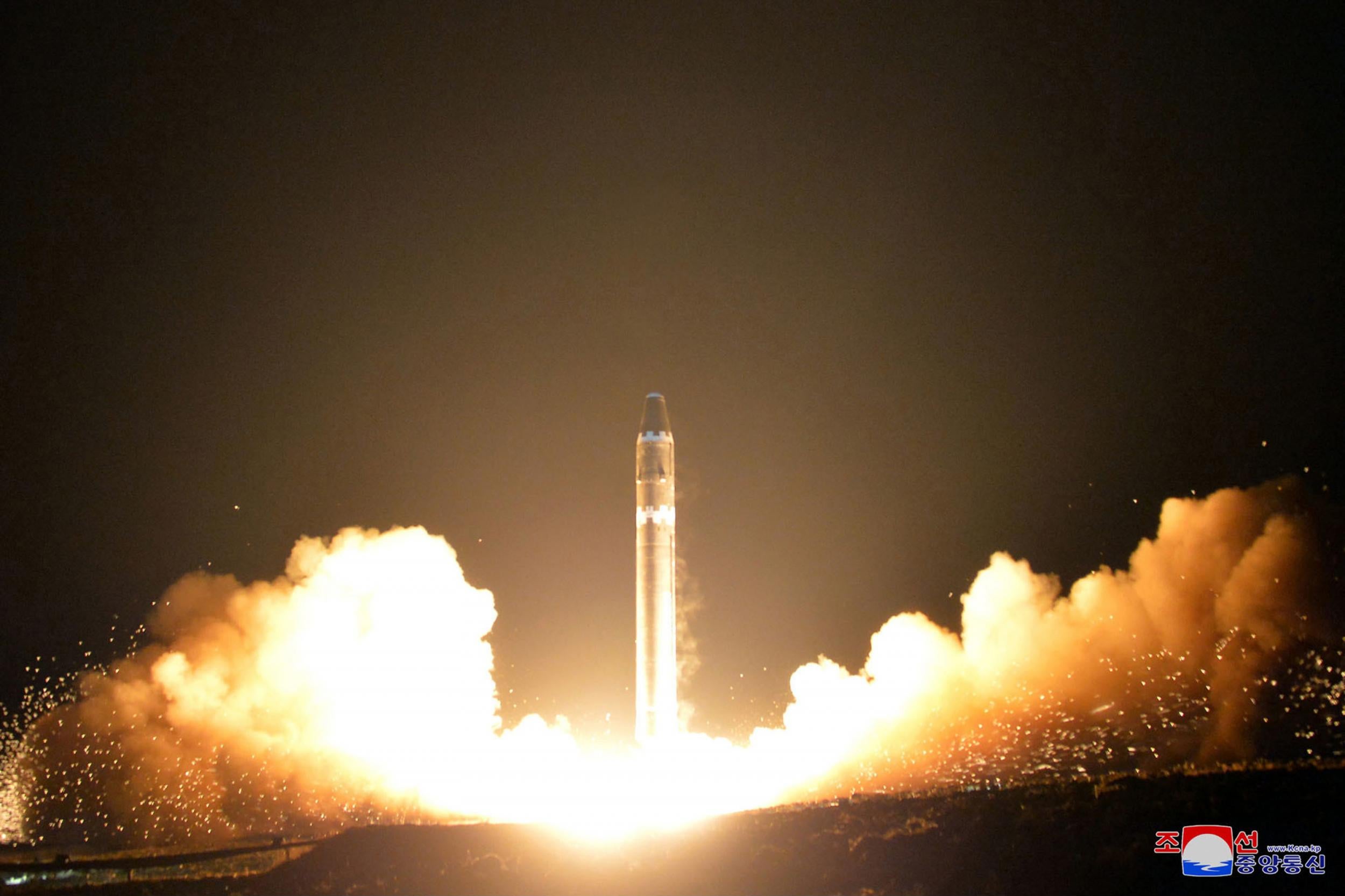North Korea: Japan to buy long-range missiles for first time due to 'increasingly severe' national security fears
Move appears to contradict Tokyo's own ban against the right to wage war

Your support helps us to tell the story
From reproductive rights to climate change to Big Tech, The Independent is on the ground when the story is developing. Whether it's investigating the financials of Elon Musk's pro-Trump PAC or producing our latest documentary, 'The A Word', which shines a light on the American women fighting for reproductive rights, we know how important it is to parse out the facts from the messaging.
At such a critical moment in US history, we need reporters on the ground. Your donation allows us to keep sending journalists to speak to both sides of the story.
The Independent is trusted by Americans across the entire political spectrum. And unlike many other quality news outlets, we choose not to lock Americans out of our reporting and analysis with paywalls. We believe quality journalism should be available to everyone, paid for by those who can afford it.
Your support makes all the difference.Japan will buy long-range missiles that can strike North Korea amid “increasingly severe” national security fears – despite concern the move effectively breaches its ban against the right to wage war.
Defence Minister Itsunori Onodera revealed Tokyo plans to build up an arsenal to target "enemy threats" as tensions rise in the island nation over Pyongyang and its bid to be a nuclear power.
The secretive state has launched almost 20 ballistic missiles this year, with two triggering warnings after they flew over the north of Japan before crashing into the sea.
"We will implement stand-off missiles capable of defending ourselves adequately, when we are outside the range of the opponent, in order to ensure the safety of the Self Defense Force and to defend our nation effectively," Mr Onodera told a news conference in Tokyo.
The defence minister did not mention North Korea by name but the move by Japan to flex its military muscles is seen as a veiled threat to Pyongyang.
"We are planning to introduce the JSM (Joint Strike Missile) that will be mounted on the F-35A (stealth fighter) as 'stand-off' missiles that can be fired beyond the range of enemy threats," Mr Onodera added.
Joint Strike Missiles can hit targets more than 600 miles away, giving Japan the ability to strike both ground and sea targets of its neighbouring countries, including China.
But the distance at which Tokyo will be able to hit “enemy threats” could amount to a breach of its peace time accord – and is likely to alarm Beijing, analysts say.
Japan's missile capabilities had been limited to anti-aircraft and anti-ship munitions with ranges of less than around 200 miles.
It had that enshrined in its constitution after it fell under the command of the US following its defeat in World War Two, and it remained in the document after the country gained independence.
The plan to buy the long-range missiles is likely to face criticism from opposition parties in parliament, especially from politicians wary of the watering down of Japan's renunciation of the right to wage war.
But the growing threat posed by North Korean ballistic missiles has spurred calls from politicians, including Mr Onodera, for a more robust military that could deter Pyongyang from launching an attack.
The change suggests the growing threat posed by North Korea has given proponents of a strike capability the upper hand in military planning.
"North Korea's advancements made it inevitable that Tokyo would purchase standoff strike capabilities," Adam Mount, a senior fellow at the Federation of American Scientists, told CNN.
"Standoff missiles will ensure that Japan has a credible response to attacks against its territory, which will help them deter these strikes in the first place."
North Korea test-fired a missile over Japan last week as it tried out a new type of intercontinental ballistic missile that climbed to an altitude of more than 2,500 miles before crashing into the sea within Japan's exclusive economic zone.
Additional reporting by Reuters
Join our commenting forum
Join thought-provoking conversations, follow other Independent readers and see their replies
Comments